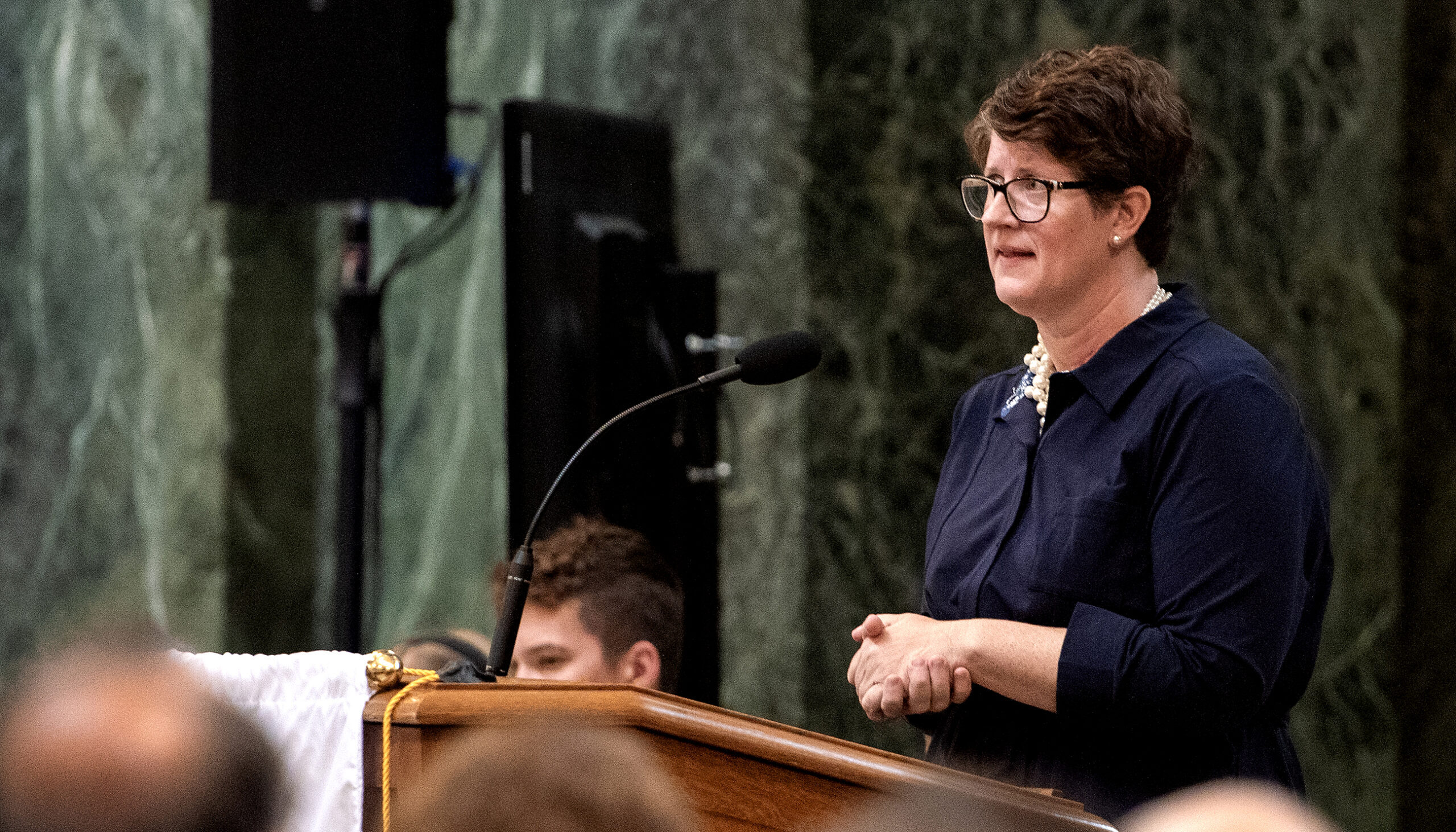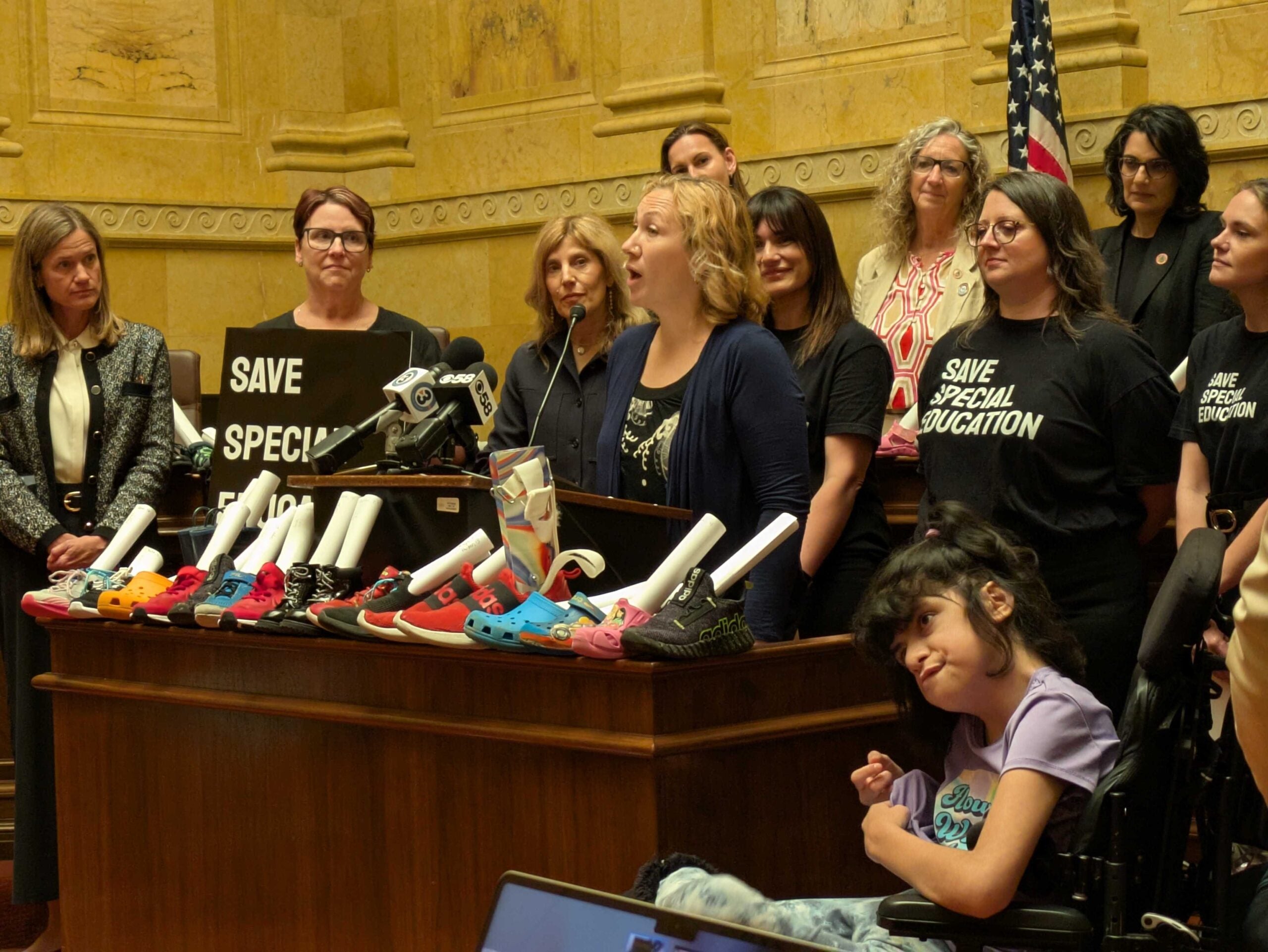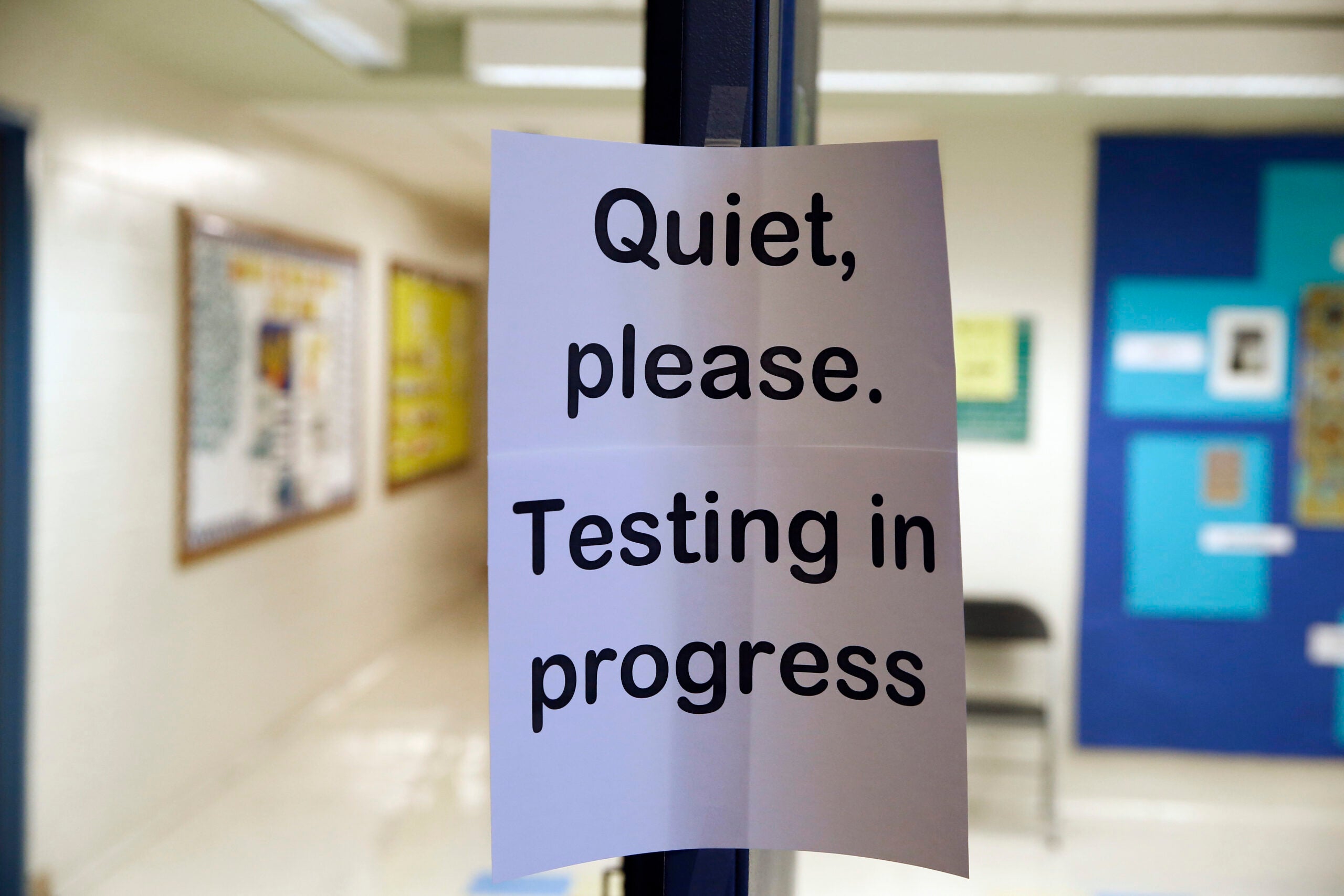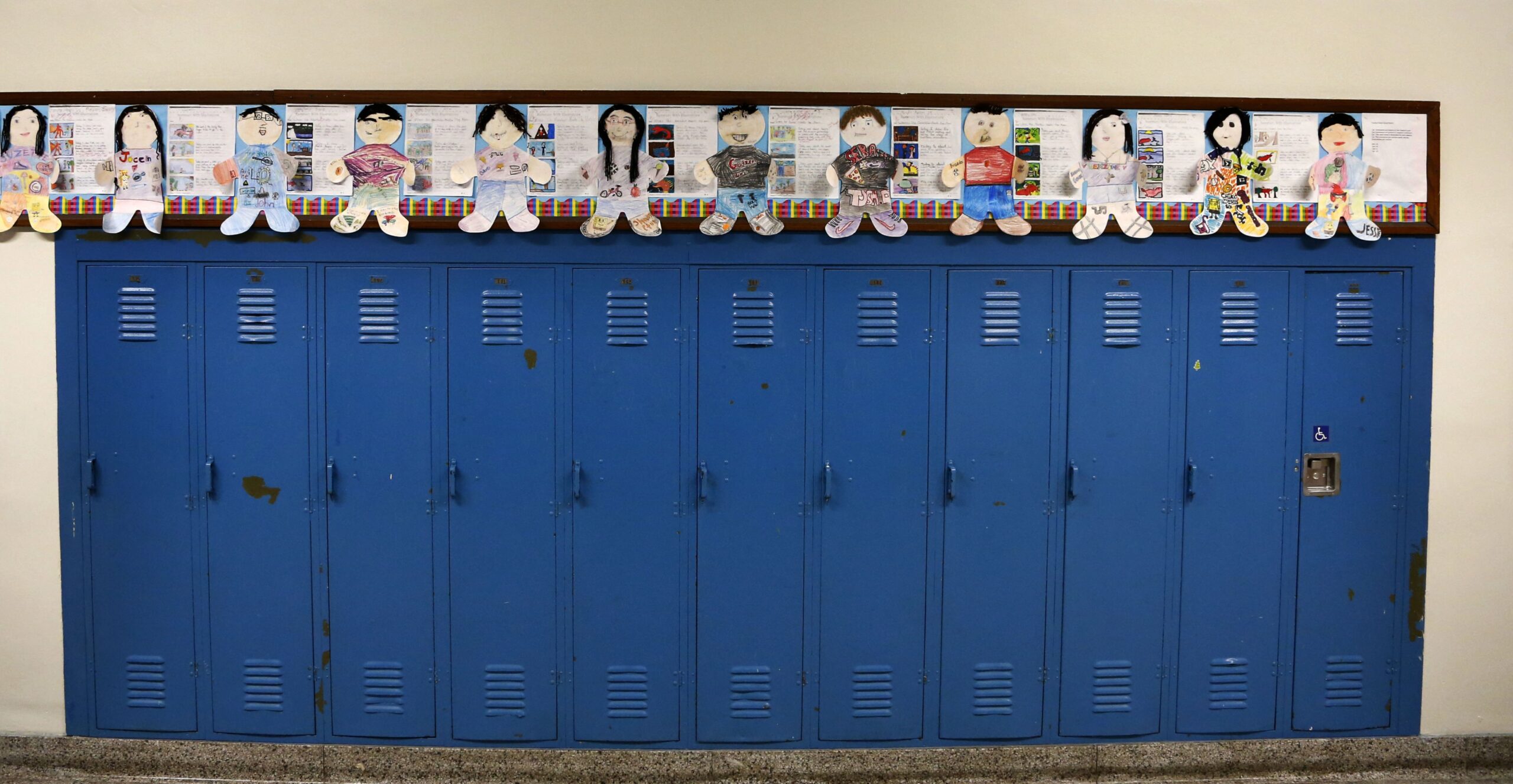There is a battle underway in Wisconsin and across the nation over diversity, equity and inclusion initiatives in schools. On Thursday, State Superintendent Jill Underly decided to join the fight.
Underly, who has led the state’s public school system since April 2021, said some elected officials are trying to “homogenize learning in a way that is just not reflective of historical or current reality, or of a child’s lived experience.”
Her remarks during the annual State of Education Address come as Wisconsin public-school teachers have come under fire for teaching books or songs deemed offensive and some school boards have banned “safe space” signs and stickers for LGBTQ+ students.
News with a little more humanity
WPR’s “Wisconsin Today” newsletter keeps you connected to the state you love without feeling overwhelmed. No paywall. No agenda. No corporate filter.
“This is a good moment to remember that curriculum which reflects the diversity of the human struggle and progress is, in fact, reflective of the history of this country, and that affirming that the lives of our Black, Indigenous and students of color matter is not political. It is a statement of fact,” Underly said. “Also, it bears remembering that safety is a requisite for every kid, and creating safety for LGBTQ+ kids is not controversial. It is the bare minimum.”
Wisconsin Assembly Speaker Robin Vos, R-Rochester, has said he will try to block pay raises for University of Wisconsin employees unless the university cuts DEI spending by $32 million. Vos did not respond for comment.
Underly began her address calling for hope in times of division and uncertainty. She told the children’s story of “The Very Hungry Caterpillar” and its “messy transformation” into a butterfly as an analogy of what has happened in public education.
“There is, I know, a lot of mess,” she said. “We’re through a global pandemic. We’re seeing mental health challenges that have been mounting for too long turn into a burgeoning crisis. There is so much division and hate, because it’s easy to stoke fear in times of shifting and uncertainty and change.”
Education has become a political hot button issue. This year, the state budget included the largest financial expansion to private school choice in the program’s history. Taxpayer funding for kindergarten through eighth grade private choice schools is now $9,500 per student. Funding for private choice high schools is $12,000 per student.
Democratic Gov. Tony Evers increased per pupil spending for public school students $325 per year for 402 years, although Republican legislators hope to undo that.
Still, despite the pollical climate, a sweeping bipartisan reading bill was passed this year to improve how children learn to read.
Underly said that, too, was messy. But she’s “100 percent” confident it will make a difference for children.
“This is an example of how we can work together to advance good policy and good research to help kids, and to help the future be brighter for all kids, and in turn, all of us,” she said.
State Sen. Duey Stroebel, R-Cedarburg, released a statement saying the state of education in Wisconsin is in a better position because Republicans have focused on funding students’ success.
“Besides the record increase in public school resources to the tune of $1.2 billion, the compromise included a remarkable $280 million investment in choice and charter schools,” Stroebel said. “Republicans also worked with Underly and other stakeholders on a critical phonics and literacy bill. These accomplishments are great news for the future of education in Wisconsin and should receive bipartisan praise.”
GOP gives its own ‘State of Education’ address
During Underly’s address in the Capitol, Sen. John Jagler, R-Watertown, who chairs the Senate Committee on Education, gave the GOP’s address on the state of education on YouTube, promoting the state’s school choice program.
“Unfortunately, our educational progress is under attack from the educational establishment, their allies, and legislative Democrats,” Jagler said, referring to a series of bills introduced last week that would eliminate school choice.
“Because of this, our choice programs and waiting lists to get into them our growing, and the waiting lists for them are growing, too…not because of what we’ve done in the Capitol, but because parents are demanding it,” Jagler said.
Editors note: Wisconsin Public Radio is a service of the University of Wisconsin-Madison.
Wisconsin Public Radio, © Copyright 2025, Board of Regents of the University of Wisconsin System and Wisconsin Educational Communications Board.






